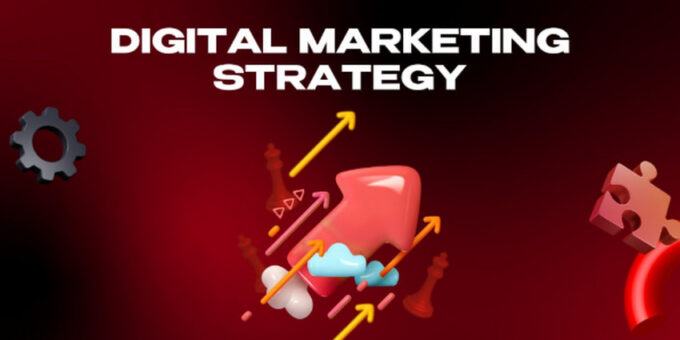
A strong digital marketing strategy helps businesses grow. With the right plan, you can reach more customers and boost sales. Here’s how to create a strategy that delivers results.
1. Define Your Goals Clearly
Every successful strategy starts with clear goals. Do you want more website traffic, leads, or brand awareness? Setting specific and measurable goals keeps you focused. Moreover, clear objectives help track progress effectively.
Use the SMART framework—specific, measurable, achievable, relevant, and time-bound. This approach ensures realistic and attainable targets. A clear goal sets the foundation for your strategy.
2. Understand Your Target Audience
Knowing your audience improves marketing effectiveness. Research their demographics, interests, and online behavior. Use tools like Google Analytics and social media insights for valuable data.
Furthermore, creating buyer personas helps tailor your messages. A well-defined audience makes content more relevant and engaging. Understanding their needs leads to better conversions.
3. Conduct a Competitive Analysis
Analyzing competitors provides insights into industry trends. Identify their strengths and weaknesses to refine your approach. Moreover, studying successful competitors reveals effective tactics.
Use tools like SEMrush, Ahrefs, or SimilarWeb to gather data. Understanding competitor strategies helps you stay ahead in the market. A thorough analysis guides better decision-making.
4. Optimize Your Website for SEO
Search engine optimization (SEO) boosts organic traffic. A well-optimized website ranks higher on Google. Keyword research helps target relevant search queries.
Furthermore, optimizing page speed, mobile-friendliness, and metadata improves user experience. High-quality content with proper keywords enhances visibility. A strong SEO strategy attracts consistent traffic.
5. Create High-Quality Content
Content is the backbone of digital marketing. Engaging and informative content builds trust with your audience. Moreover, quality content improves search rankings and customer engagement.
Blog posts, videos, and infographics attract different audiences. A mix of formats keeps content interesting. Valuable content encourages sharing and increases brand credibility.
6. Leverage Social Media Marketing
Social media platforms drive brand awareness and engagement. Posting regularly keeps your audience interested. Moreover, interactive content boosts visibility and shares.
Choose platforms that align with your target audience. Facebook, Instagram, LinkedIn, and Twitter offer unique benefits. A strong social media presence builds customer relationships.
7. Implement Email Marketing Campaigns
Email marketing remains one of the most effective strategies. Personalized emails increase engagement and conversions. Moreover, automation tools simplify the process and improve efficiency.
Building an email list ensures direct communication with customers. Providing valuable content keeps subscribers interested. A strong email strategy nurtures leads effectively.
8. Use Pay-Per-Click (PPC) Advertising
PPC advertising drives immediate traffic and conversions. Google Ads and social media ads target specific audiences. Moreover, well-crafted ad copy improves click-through rates.
Budgeting wisely ensures a high return on investment (ROI). Tracking performance metrics helps optimize campaigns. A well-managed PPC strategy delivers quick results.
9. Focus on Customer Engagement
Engaging with customers builds trust and loyalty. Responding to comments and messages strengthens relationships. Moreover, interactive content like polls and quizzes boosts engagement.
User-generated content enhances credibility. Encouraging customer reviews improves brand reputation. A strong engagement strategy keeps audiences interested.
10. Analyze and Adjust Your Strategy
Regular analysis improves marketing performance. Tracking key metrics provides valuable insights. Moreover, making data-driven decisions enhances results.
Google Analytics, social media insights, and SEO tools help monitor progress. Identifying trends allows timely adjustments. A flexible strategy ensures continuous improvement.
Conclusion
A winning digital marketing strategy requires clear goals, audience understanding, and consistent optimization. Implementing these steps boosts brand visibility and sales. Stay adaptable, analyze data, and refine strategies for long-term success.